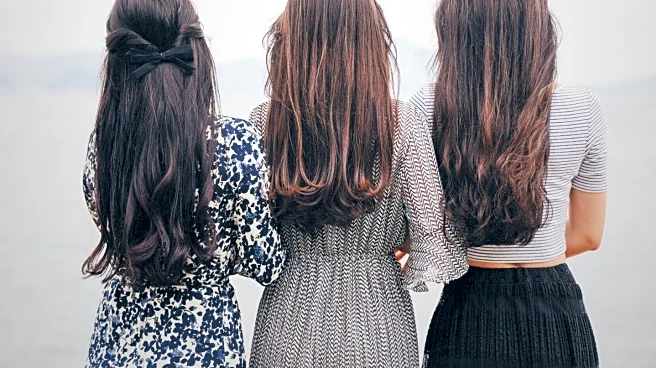What's Happening?
A viral TikTok video by Ashanti, known as @unpunishablewoman, has sparked a conversation among single millennial women about their relationships with married friends. Ashanti's video criticizes married women for not investing as much in the lives of their single friends,
while single women are expected to support their married friends through life events such as weddings and baby showers. The video, which has garnered over 200,000 views, resonates with many single women who feel their achievements are undervalued compared to those related to marriage or parenthood. The discussion highlights a perceived imbalance in adult female friendships, where single women feel neglected and undervalued.
Why It's Important?
The viral video underscores a broader societal issue regarding the expectations placed on single women in friendships with married individuals. This conversation reflects changing dynamics in adult relationships and the need for mutual support and recognition of diverse life achievements. The frustration expressed by single women may lead to a reevaluation of friendship norms and expectations, promoting more equitable and supportive relationships. The discourse also highlights the emotional labor often expected from single women, which can impact their mental health and social well-being.
What's Next?
The viral nature of Ashanti's video may encourage more single women to voice their experiences and demand more balanced friendships. This could lead to increased awareness and dialogue about the emotional labor involved in maintaining friendships across different life stages. Married individuals may become more conscious of the need to reciprocate support and recognition for their single friends' achievements. The conversation may also influence social norms and expectations, fostering more inclusive and supportive friendship dynamics.
Beyond the Headlines
The discussion initiated by Ashanti's video touches on deeper cultural and societal expectations regarding gender roles and relationships. It challenges traditional views of women's roles in friendships and highlights the need for evolving social norms that recognize diverse life paths. The conversation may contribute to broader discussions on gender equality and the value of diverse experiences and achievements.


















